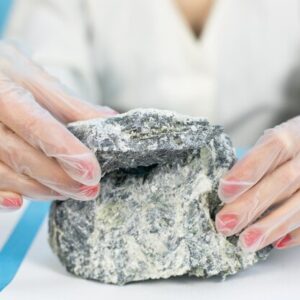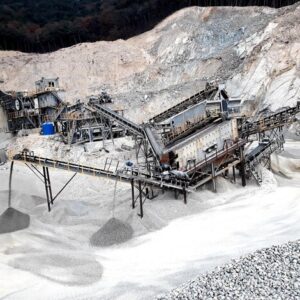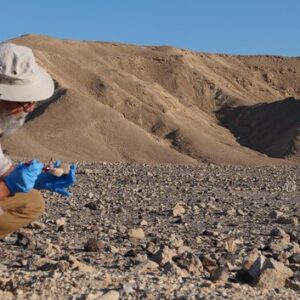Bentonite clay, a natural substance formed from volcanic ash, has been used for centuries for its diverse applications in skincare, health, and industrial processes. Renowned for its unique ability to absorb toxins and impurities, this mineral-rich clay has become a staple in homes and industries. However, like many natural products, questions often arise regarding its shelf life and whether it expires. This article delves into the shelf life of bentonite clay, factors that affect its longevity, and best practices for storage to ensure its effectiveness.
What is Bentonite Clay?
Bentonite clay is a fine-textured material primarily composed of montmorillonite, a type of smectite mineral. It is valued for its high cation exchange capacity and ability to expand when hydrated. Its uses span various industries, including:
- Cosmetics: For making face masks and skincare products.
- Health: Detoxifying agents and dietary supplements.
- Industrial Applications: Drilling mud, cat litter, and wastewater treatment.
The chemical structure of bentonite clay gives it the ability to absorb water and other substances, making it an effective cleansing and detoxifying agent.
Does Bentonite Clay Expire?
In general, bentonite clay does not have a strict expiration date. Unlike perishable food or cosmetic products, bentonite clay is a naturally occurring mineral that remains chemically stable over time if stored correctly. However, its effectiveness may diminish due to external factors such as contamination, improper storage, or prolonged exposure to moisture.
Here are the key points to understand:
- Chemical Stability: As a mineral, bentonite clay does not break down or decompose over time.
- Effectiveness: While the clay itself does not expire, its ability to absorb impurities and toxins can be compromised if it absorbs moisture or contaminants from the environment.
- Commercial Expiration Dates: Products containing bentonite clay, such as masks or supplements, often have expiration dates due to added ingredients, not the clay itself.
Factors Affecting Bentonite Clay’s Shelf Life
- Moisture Exposure
Bentonite clay is highly hygroscopic, meaning it readily absorbs water from its surroundings. If exposed to moisture, the clay can clump, lose its powdery consistency, and reduce its detoxifying properties. To avoid this, always store bentonite clay in a dry environment. - Contamination
Improper handling or storage can introduce contaminants such as dust, oils, or bacteria. Contamination can compromise the clay’s purity and effectiveness. - Storage Conditions
Exposure to air, heat, or sunlight can degrade the quality of bentonite clay over time. It’s essential to keep it in an airtight container in a cool, dark place to maintain its potency. - Added Ingredients
Many commercial products with bentonite clay include additives such as oils, fragrances, or preservatives. These ingredients may degrade over time, causing the overall product to expire even if the clay remains stable.
Also Check: – Sodium bentonite suppliers
How to Tell If Bentonite Clay Has Gone Bad
Though bentonite clay itself does not expire, its usability can be compromised. Here are signs that it may no longer be effective:
- Clumps or Lumps: If the clay has absorbed moisture, it may form clumps.
- Unpleasant Odor: Pure bentonite clay is odorless. An unusual smell indicates contamination.
- Discoloration: Changes in color may suggest contamination or degradation of additives.
- Reduced Absorption: If the clay no longer absorbs water effectively, it may have degraded.
Storage Tips for Prolonging Bentonite Clay’s Shelf Life
Proper storage can ensure your bentonite clay remains effective for years. Follow these tips:
- Use Airtight Containers
Store bentonite clay in a sealed, airtight container to prevent exposure to air and moisture. - Keep in a Cool, Dry Place
Avoid storing the clay in areas prone to humidity, such as bathrooms or kitchens. - Avoid Contamination
Use clean utensils when handling the clay to prevent introducing dirt, oils, or bacteria. - Label and Date
If you purchase bentonite clay in bulk, label the container with the purchase date. This helps you track its age and usage.
Frequently Asked Questions
- Can I Use Expired Bentonite Clay Products?
If a commercial product containing bentonite clay has passed its expiration date, check the appearance, smell, and consistency. If there are no signs of spoilage, it may still be safe to use, but its effectiveness could be diminished. - How Long Does Bentonite Clay Last?
When stored properly, pure bentonite clay can last indefinitely. Products containing bentonite clay, however, typically last 1–3 years, depending on added ingredients. - What Happens If Bentonite Clay Absorbs Moisture?
If the clay absorbs moisture, it may clump and lose its powdery texture. While it may still be usable, its detoxifying properties may be reduced. - Is Old Bentonite Clay Harmful?
Pure bentonite clay is not harmful even if stored for long periods. However, if it has been contaminated or improperly stored, it could harbor bacteria or other impurities.
Also Read: – How to store bentonite clay
Conclusion
Bentonite clay, as a naturally occurring mineral, does not technically expire. Its longevity and effectiveness depend on proper storage and handling. By keeping it in a dry, airtight container and avoiding contamination, you can ensure your bentonite clay remains effective for years to come. For commercial products containing bentonite clay, pay attention to the expiration dates and inspect for signs of spoilage before use.
Whether you use bentonite clay for skincare, detoxification, or other applications, maintaining its quality ensures you reap its many benefits for as long as possible.






